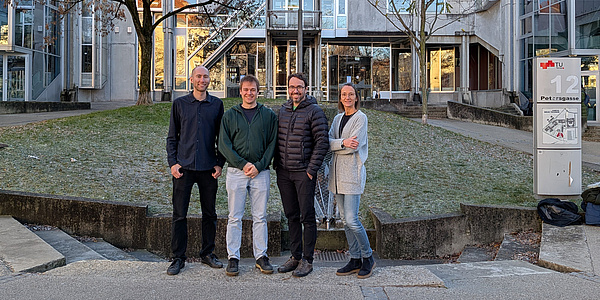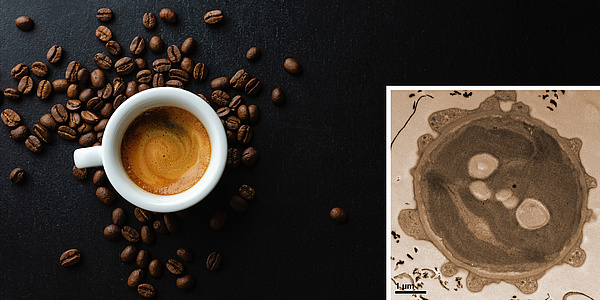A Healthy Heart Needs a Healthy Environment

In the western world in particular, many things are available in abundance, be it food, entertainment, mobility or opportunities to use the media. All this also has a negative impact on our environment. This applies to the industrialisation of the food industry as well as land sealing for transport, industry, entertainment and shopping centres, air pollution caused by mobility and energy consumption in general. The environmental damage caused by this ultimately also affects our hearts, because many microorganisms that are beneficial to our health have been lost as a result.
The planet in polycrisis
“A very clear statement that I share with many of my colleagues is this: the whole planet and its inhabitants are sick. We are in polycrisis,” says Gabriele Berg from the Institute of Environmental Biotechnology at Graz University of Technology (TU Graz). She focuses on microbiome research, i.e. all the micro-organisms that live on a macro-organism such as a human, animal or plant and connecting them to the environment. “Our planet is suffering in the extreme, and these changes are also linked to general microbiome changes,” emphasises Gabriele Berg.
For her and her scientific colleagues, this raises the question of how everything is connected in the wider context of the Earth’s deteriorating condition and what can be done to counter these developments. Science already knows that all human diseases correlate with the microbiome. However, this does not mean that the microbiome is the cause of every disease. “But we know that today’s diet, the so-called western diet, changes the microbiome dramatically and leads to obesity. And obesity is the first step towards heart disease.” There is now also evidence that the consumption of red meat leads to increased arteriosclerosis, because bacteria-converted components of the meat are deposited in the blood vessels.
Sport and a plant-based diet
What can be done to prevent such illnesses? There are clear answers from microbiome research. Sport has a positive effect on the microbiome. And a high-fibre diet also has beneficial effects. “A plant-based diet would be ideal. You should eat 30-40 plants per week to maintain a microbiome that is as diverse as possible. At the same time, it is advisable to eat much less meat and more fermented foods,” explains Gabriele Berg. These fermented foods include sauerkraut, yoghurt, kimchi, tempeh, olives and miso.
As helpful as a plant-based diet is for our own health, human influence has ensured that its full effect can no longer unfold. “We have proof that we as humans have lost a lot of health-promoting micro-organisms. The reason is not only the increased consumption of meat. The plant-based foods we eat today no longer contain the right micro-organisms – for many reasons. There is excessive breeding, too much fertiliser and pesticides, as well as general environmental pollution from contaminants such as microplastics.”
These influences affect the microbiome of our plant-based foods. “In the past, each plant had a very specific microbiome, but this is lost when they are cultivated using industrial methods. Instead, we get a lot of fast-growing bacteria, which are probably a contributory cause of obesity. Antimicrobial resistance is spreading, making it more difficult to combat pathogens. The plant microbiome thus plays a central role in human health, soil health and animal health. But because it has already changed so much, a cycle is being created that transports these changes everywhere,” explains Gabriele Berg.
Healthy plants strengthen the gut microbiome
The increased switch to a plant-based diet could be part of the solution here. After all, it would be very beneficial to the health of the planet if sustainable agriculture became the most important pillar of nutrition and factory farming were to be greatly or completely reduced. This would also be due to the fact that a large part of industrial agriculture produces animal feed for intensive livestock farming. Nature-based agriculture without massive use of fertilisers and pesticides should be beneficial to the plant microbiome. When we consume these plants, this in turn ensures more diversity in our gut microbiome, a study by TU Graz in 2023 has shown. And a diverse gut microbiome subsequently reduces the risk of cardiovascular disease. So if the Earth is doing well, the heart is also doing well.
This research area is anchored in the Field of Expertise “Human & Biotechnology”, one of five strategic foci of TU Graz.
You can find more research news on Planet research. Monthly updates from the world of science at Graz University of Technology are available via the research newsletter TU Graz research monthly.
Kontakt
Gabriele Berg
Univ.-Prof. Dipl.-Biol. Dr.rer.nat.
TU Graz | Institute of Environmental Biotechnology
Phone: 0+43 316 873 8310
gabriele.berg@tugraz.at




